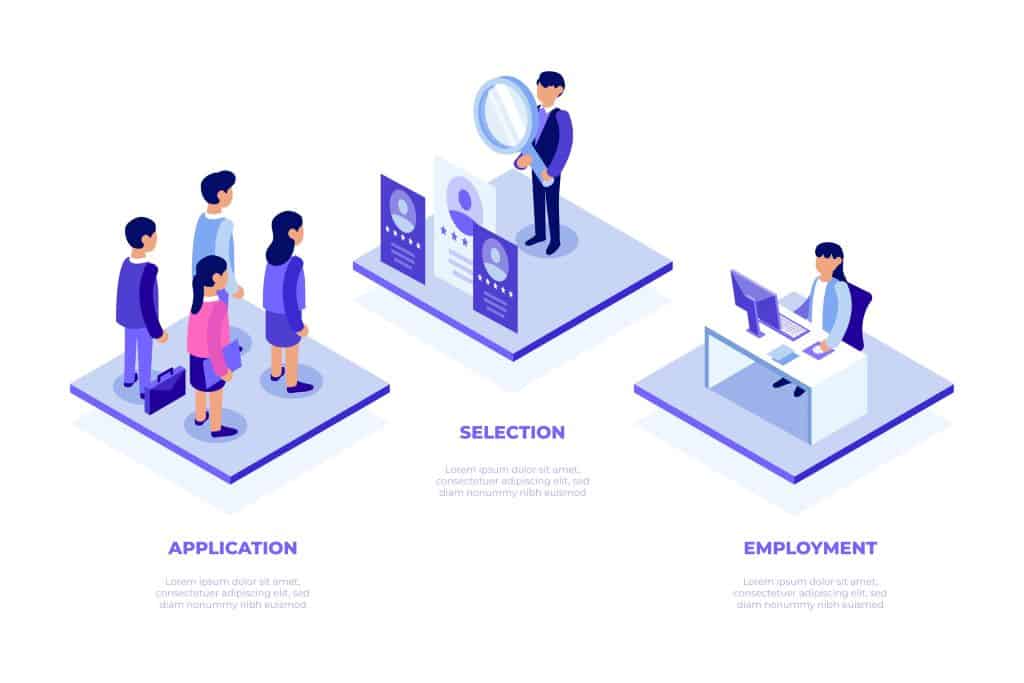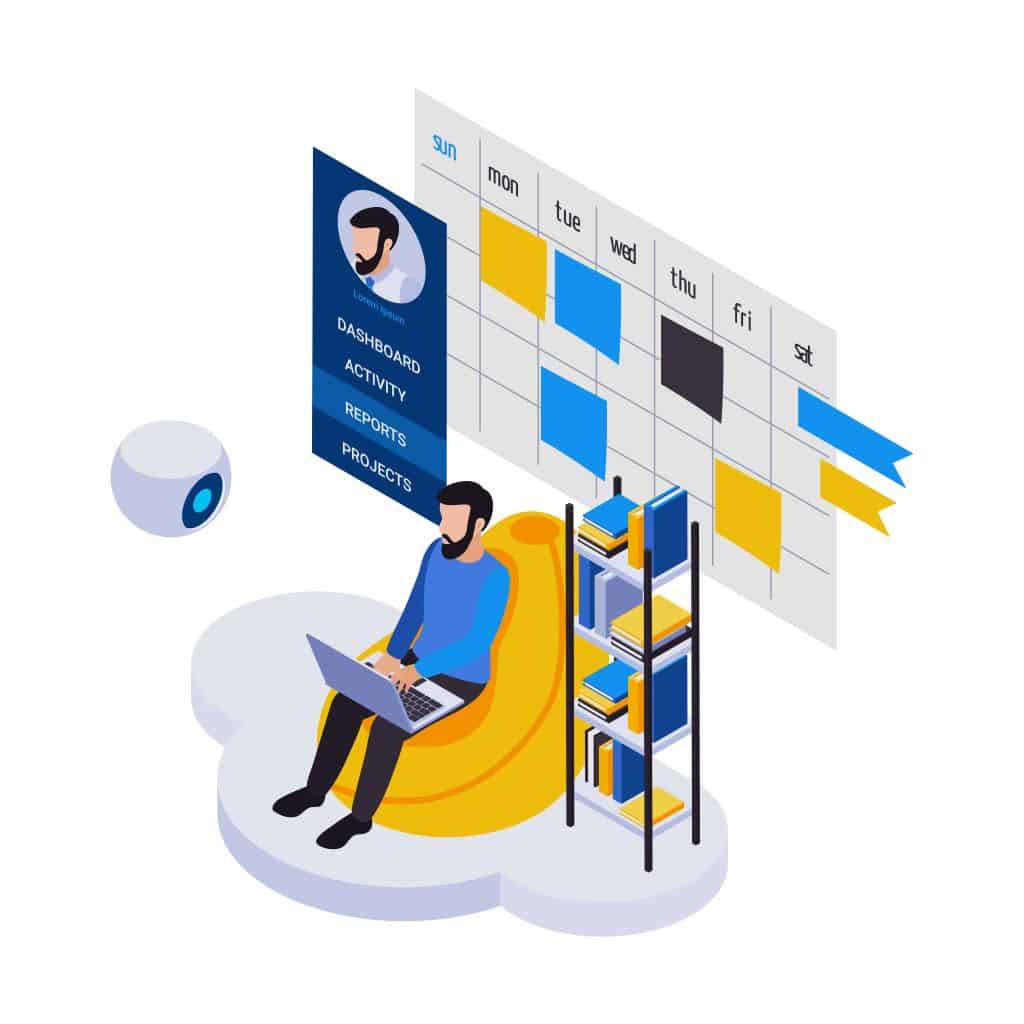Recruiting and onboarding a new employee to the company is although tough but thrilling experience. As soon as a new intern enters into the brand new environment of the organization, it becomes challenging for him to start fresh. What’s worse is not knowing the answers to important queries, conditions, and procedures, and still trying to fit in can be a bit frustrating initially. Though putting little effort into a comprehensive employee onboarding experience can make things better for him. It can allow him to better understand the company’s work culture and get adequately prepared for the job from the start.
However, in the absence of a proper onboarding process, the risk of failure for a new hire increases. So, streamlining a comprehensive employee onboarding experience is a must and an important step in making the recruitment process successful. This blog will help guide you in setting a comprehensive employee onboarding experience and will clear all your thoughts about it.
What is Employee Onboarding?
Employee onboarding also referred to as organizational socialization is an important part of the recruitment process. It is a key transitional period of involving the new hire in the company’s work culture, values, the system as well as processes. It is generally the combination of all the processes that convert the new hire from a new employee to a productive member of the team.
It is designed such that to help new hires adjust and adapt to their new jobs quickly while acquiring the required skills and knowledge that are must to genuinely contribute to the organization. It includes making the new employee familiar with the social and performance element of their new position.
The employee onboarding process is much more than just the basic paperwork and involves the administrative processes that help new hires to acclimate to their roles. The onboarding processes include all the processes from documentation verification to partnering with the leadership team, hiring managers, payroll department, and IT sector to build a predictable and productive environment for all the new hires in the first 90 days of their job. The employee onboarding experience can continuously be improved by gathering feedback from the existing employees and implementing new ideas for the new ones.
Why is Employee Onboarding necessary?
Employee Onboarding is a necessary step from the perspective of both employees as well as the employer. A good employee onboarding experience gives both of them a chance to understand each other which helps in better functioning in the future. It allows the employer to create a foundation for long-term success by creating a better employee onboarding experience from the day an offer is extended till the new hire becomes a fully productive member of the organization. The same goes with the employee, a good experience in onboarding builds a strong level of trust in the organization and helps him to adjust well to the new environment.
In the absence of a good employee onboarding experience, any employee can lose track without even figuring out anything in the first place. If the employee is not able to integrate himself into the new role, eventually he can feel left out and will try to seek other employment options elsewhere.
Top 5 Tips to A Comprehensive Employee Onboarding Experience with Bridgentech
To ensure a smooth transition from being a new employee to a productive one, it is important to streamline the company’s onboarding process fluently. Here are a few tips that will help you achieve your goals of a hassle-free onboarding process.
- Start Strong and Get Ahead of The Paperwork Process
Onboarding requires proper planning in advance and ensuring to execute it in a proper way. Many companies initiate their official onboarding plan by sending the new hire a welcome letter, hamper, and gift as a token of welcoming to the family after he accepts the offer letter. This practice ensures building the right first impression and ensures that the relationship begins in a positive way.
The next key step of the onboarding involves ensuring that the new hire gets all of his documentation completed on the very first day to ensure a hassle-free journey ahead. It includes getting his documents verified and getting his signatures on the contractual agreements or the other documents required for further proceedings. This step also involves providing the new employee with some introductory documents or handbooks that will give him an idea about the company procedures and will provide him brief information about his role before he or she can begin to work. - Involve the Team and Make It A Team Effort
The onboarding process is yet another opportunity for the new hire to know his team as well as for his team to know him personally. It is important for the hiring managers to introduce the new employee to his team members so that they can get to know them closely in the initial days. This interaction can help him to collaborate and cooperate with them easily.
The hiring managers can also assign a mentor for them who can help them with their questions about the new environment and company culture. The new employee should be given a comfortable environment so that he could ask his questions and doubts and can take advice from his team members during initial interactions. These steps will foster good colleague relationships in the early stage of team formation and would prove to be useful during the productive days of the new hires. - Give Space for Settling in
One of the important aspects of making the employee onboarding experience better and smooth is to understand not everyone processes the information in the same manner as others. The finest way to make someone welcome is to give them time and space to digest all the information about their role and organization. This definitely doesn’t imply that you extend the onboarding process for a long period. However, you can make the effort in making the procedure handbooks and documents accessible to the new hires in their initial days and allow them some time to read and discuss their follow-up questions if any.
This space will give them time to absorb all the information they are getting and would make them more comfortable in the new team and environment. - Comprehensive Training Procedure
A comprehensive onboarding plan requires much more than just outlining the responsibilities and work duties of a new hire. The overarching purpose of onboarding is to provide the new employee with a thorough understanding of the background, values, and objectives of the business. Although as discussed a certain amount of knowledge must be conveyed at the beginning of the training process, filling in all the information at once can be a little too much.
The training procedures should be well synchronized and managed and should give the new hire space to learn things independently. This can be achieved using some online learning management systems and can involve setting up individual sessions, training modules, and providing tool training. This would give the employee freedom to explore the resources and refer to the information whenever required and will result in growing their skills and enthusiasm for the company. - Emphasize getting feedback from them
Onboarding for any organization is a continuous process and there is always a window for improvement. So it is important to continuously take feedback from the employees and employ the changes for new ones. The hiring managers should always have channels open for receiving feedback so that the new recruits can discuss their experiences and they can strive to make improvements for future new hires.
The companies can also opt for setting up formal drives for feedback like holding a small discussion meeting with hiring managers or recruiters after around 60 to 90 days of onboarding or giving survey feedback forms to get the insights. It is always important to provide a comfortable environment for the freshers to speak up about their onboarding experiences.
Para resumir
A comprehensive employee onboarding experience sets every employee up for their success regardless of their background or experience. Companies with proper onboarding experience are more likely to make it easy for their new hires to adjust and adapt to the new environment with the positive feeling that they made a proper choice than those who don’t synchronize their onboarding process.
Preguntas frecuentes
- What is the onboarding process?
The onboarding process refers to all the processes which help the organization integrate the new hire into the organization. It includes the orientation process, documentation work as well as the training and learning sessions of the recruit. - Why is a good employee onboarding experience important?
A good employee onboarding experience is important because it helps the new employee to better understand his role and responsibilities for the organization and learn about the company culture, values, and environment. In most cases, a new employee’s success in the organization highly depends upon the onboarding process.







